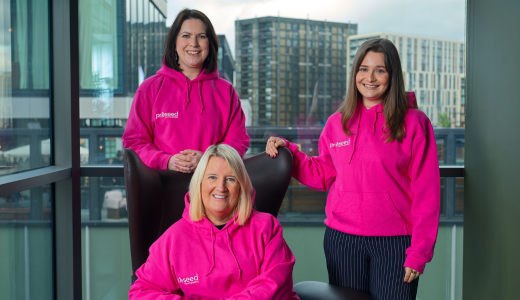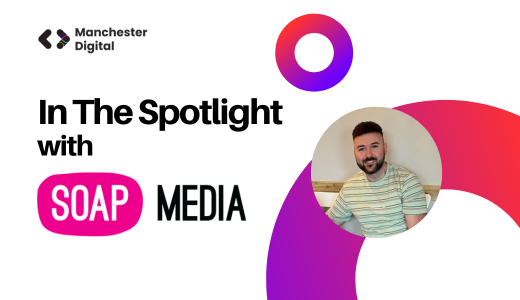
Why Turning Leads Into Sales Matters in Manchester
Leads are the lifeblood of every service business. Whether you run a legal practice in Spinningfields, a financial consultancy in Deansgate, or a trades business serving Greater Manchester, you need a steady stream of new enquiries to keep growing.
The problem is that many businesses focus all their effort on lead generation and forget that the real return only comes when those leads turn into paying customers. You can spend thousands on ads, networking events, or cold outreach, but if your sales process is weak, you will lose most of those opportunities.
In a city like Manchester, where competition is fierce and customers have plenty of choice, having a strong system to convert leads into sales is not just helpful — it is essential.
Step 1: Respond Quickly to Every Lead
One of the biggest mistakes businesses make is waiting too long to reply. In today’s fast-moving digital world, people expect fast responses.
Research shows that if you contact a lead within five minutes of their enquiry, you are up to 21 times more likely to qualify them compared to waiting even half an hour. If you wait a full day, the chances of converting drop dramatically.
Think about it. If someone fills out a contact form about legal services, financial advice, or even booking a plumber, they are likely contacting more than one business. The one that replies first often gets the job.
Practical tips for Manchester service businesses:
- Use a CRM system that instantly captures leads from your website or ad campaigns.
- Set up automated emails or text confirmations so the prospect knows you received their message.
- Have a clear process in place so staff know who should call or email new leads straight away.
For businesses running ads, this is even more important. If you are investing in campaigns with a PPC agency in Manchester, your money is wasted if you let leads go cold before responding.
Step 2: Qualify Leads Before You Invest Time
Not every enquiry will be a good fit. Some people are just researching, some do not have the budget, and some are simply not ready to buy. Chasing the wrong leads wastes time and energy that could be spent on high-value opportunities.
A simple qualification system helps filter leads. One popular method is BANT:
- Budget – Do they have the money for your service?
- Authority – Are you speaking to the decision-maker?
- Need – Do they really need your service?
- Timeline – Are they looking to buy soon or much later?
For example, a Manchester solicitor may get calls from people asking for advice but unwilling to pay fees. A financial adviser may get leads from students who are curious but not serious. By asking the right questions early, you can focus on the clients most likely to convert.
Step 3: Build Trust Early and Consistently
In Manchester, relationships matter. The city has a strong business community where reputation and reliability go a long way. Before someone becomes a customer, they need to trust you.
How can service businesses build trust?
- Show social proof. Use testimonials from local clients and case studies that prove results.
- Offer free value. Share guides, hold short consultations, or publish helpful blog posts.
- Be transparent. Share clear pricing, outline your process, and avoid hidden surprises.
For example, a digital marketing agency could offer a short audit of a company’s website. A legal firm could publish simple guides to common business challenges. These small steps prove expertise and build confidence.
Another powerful trust-builder is online visibility. Being seen on respected platforms, directories, or partner websites adds credibility. This is why backlinks from local organisations such as Manchester Digital can be valuable.
Step 4: Nurture Leads That Are Not Ready Yet
Not all leads buy straight away. Many need more time to decide, especially for higher-value services such as law, finance, or consultancy.
Instead of chasing aggressively, focus on nurturing. This means staying in touch in a helpful, professional way until the lead is ready.
Practical ways to nurture:
- Use email campaigns to share tips, updates, or case studies.
- Connect on LinkedIn and post useful insights that remind them of your expertise.
- Share guides or resources that help them make an informed choice.
The goal is to stay front of mind without being annoying. A lead might not convert today, but with regular touchpoints they are far more likely to choose you when the time is right.
This is where Google Ads and remarketing campaigns can help. By showing your brand to people who have already enquired or visited your website, you keep reminding them of your services until they are ready to buy.
Step 5: Improve Your Follow-Up Game
One of the most common reasons businesses lose sales is because they give up too early. On average, it takes between five and seven follow-ups before a sale is made. Yet many businesses stop after one or two attempts.
Strong follow-up makes all the difference:
- Call or email within a few days of the first contact.
- Use more than one channel such as phone, email, and LinkedIn messages.
- Add value at every step, for example by sharing a useful guide or answering a common question.
Manchester service businesses that improve their follow-up process often see a big jump in conversion rates without increasing their ad spend.
Step 6: Use Data to Track and Improve
You cannot improve what you do not measure. Tracking your sales funnel helps you spot weak points and make improvements.
Key numbers to monitor:
- Response time. How fast are you contacting new leads?
- Lead-to-opportunity rate. How many enquiries are actually qualified?
- Close rate. How many leads become paying customers?
For example, you may find that many leads are lost because your team takes too long to respond. Or maybe a large percentage drop off after the first call, which suggests your pitch needs work.
Small changes can lead to big improvements over time.
The Role of Marketing in Lead Conversion
Turning leads into sales is not just about your sales process. The way you generate leads also affects conversion rates.
- Leads from referrals or local networks tend to close quickly because trust is already there.
- Leads from Google Ads can be very strong because people are actively searching for your service.
- Leads from paid social campaigns often need more nurturing, but they can be scaled quickly if done right.
That is why working with the right partner matters. A skilled Paid Social agency can create campaigns that bring in the right type of leads, not just a high volume of clicks.
Common Mistakes Manchester Businesses Make
To round this out, here are some of the most common mistakes service businesses make when trying to turn leads into sales:
- Slow replies that let competitors get ahead.
- No system for qualifying leads, leading to wasted time.
- Too much hard selling instead of building trust.
- No nurturing process for leads that are not ready yet.
- Giving up too soon on follow-ups.
- Not tracking results, so mistakes are repeated.
Avoiding these pitfalls alone can transform your conversion rates.
Final Thoughts
For Manchester service businesses, lead generation is only half of the story. The real success comes from what happens after a lead comes in. By replying quickly, qualifying effectively, building trust, nurturing over time, following up properly, and tracking your results, you can turn more leads into paying customers.
Remember, leads are the investment and sales are the return. Focus on the full journey from enquiry to conversion, and your business will grow stronger in Manchester’s competitive market.
If you want to bring in more qualified leads and increase your sales, partnering with a specialist makes all the difference. Whether through a PPC agency in Manchester, a dedicated Google Ads agency, or a results-driven Paid Social agency, the right strategy can help you turn clicks into long-term clients.






